As the global ‘Refugee Crisis’ has been unfolding before us the last few months, my personal study of the Book of Mormon has slightly changed character. As I have been pondering how these inspired scriptures apply to me, and my life, it has become increasingly clear to me that this book really was written for us and our time.
The Book of Mormon can be read many different ways. It can be read as a novel. It can be read as a historical docudrama. It can be read as an instruction manual or guide book for life. It can be read as holy scripture. It can be read little pieces at a time, or in large big chunks of time and chapters.
I have tried lots of different ways. By theme, chronologically, fast, and super slow. With intent and out of duty. Searching for comfort and light. Shaking my head with puzzlement.
No matter which way I read it, I keep coming back to it. It won’t leave me alone.
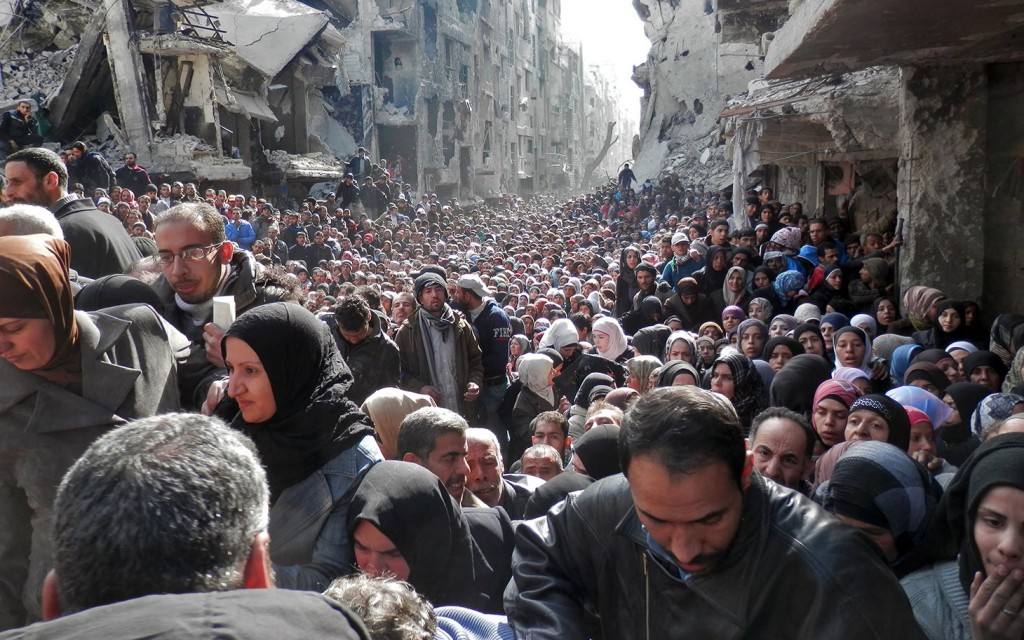
And this time around, I have seen refugee stories all over the place.
It even starts with one. Lehi, a wealthy man in Jerusalem, who spends years warning the people of Jerusalem of the war and calamities to come, finally leaves everything behind, and travels into the great unknown with his family. His life has been threatened, but more than that, he is doing what he believes God has commanded him to do. Some of his family members trust his prophetic visions, while others grudgingly follow.
Their journey is long and arduous. And once they finally arrive in the promised land, the story is only just beginning.
From then on, the book is filled with stories of groups small and large fleeing for their lives, either because of their religious convictions, evil kings and dictators, or war and famine. Sound familiar?
So what does this have to do with me? Or you? No matter where in the world we are, we are affected by the huge numbers of our brothers and sisters who are setting out on desperate journeys.
Here in Europe we are facing unprecedented numbers of refugees and migrants pouring in from the Middle East and Africa. In the US, you have your ‘corridor of death’ and the influx from Central and South America. Off the coast of Australia and Indonesia and Thailand, the Rohingya minority are increasingly being left to drown as they set out on rickety boats for safety.
If we are serious about our faith, and sincerely desire to follow the council given by our Lord and our leaders, we cannot, and will not turn a blind eye to those seeking refuge in our ‘safe havens.’
Alma 5:55 Yea, and will you persist in turning your backs upon the poor, and the needy, and in withholding your substance from them?
Sometimes it can be tempting to think that they have brought their misfortune upon themselves. That they just should have stayed put where they were, and that there is no way we can provide for all of them, anyway, so why even try? Well, King Benjamin was quite clear on that point:
17 Perhaps thou shalt say: The man has brought upon himself his misery; therefore I will stay my hand, and will not give unto him of my food, nor impart unto him of my substance that he may not suffer, for his punishments are just—
18 But I say unto you, O man, whosoever doeth this the same hath great cause to repent; and except he repenteth of that which he hath done he perisheth forever, and hath no interest in the kingdom of God.
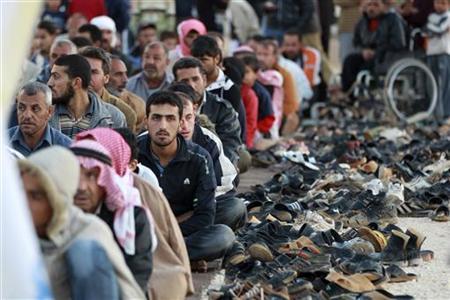
The whole chapter 4 in the book of Mosiah is in fact a recipe for how to deal with this crisis:
Here are a few more exerpts:
16 And also, ye yourselves will succor those that stand in need of your succor; ye will administer of your substance unto him that standeth in need; and ye will not suffer that the beggar putteth up his petition to you in vain, and turn him out to perish.
19 For behold, are we not all beggars? Do we not all depend upon the same Being, even God, for all the substance which we have, for both food and raiment, and for gold, and for silver, and for all the riches which we have of every kind?
21 And now, if God, who has created you, on whom you are dependent for your lives and for all that ye have and are, doth grant unto you whatsoever ye ask that is right, in faith, believing that ye shall receive, O then, how ye ought to impart of the substance that ye have one to another.
22 And if ye judge the man who putteth up his petition to you for your substance that he perish not, and condemn him, how much more just will be your condemnation for withholding your substance, which doth not belong to you but to God, to whom also your life belongeth; and yet ye put up no petition, nor repent of the thing which thou hast done.
23 I say unto you, wo be unto that man, for his substance shall perish with him; and now, I say these things unto those who are rich as pertaining to the things of this world.
And who are we, if not those ‘who are rich as pertaining to the things of this world’?
So what do we do? Let’s see what the prophet Alma has to say in chapter 1:
30 And thus, in their prosperous circumstances, they did not send away any who were naked, or that were hungry,or that were athirst, or that were sick, or that had not been nourished; and they did not set their hearts upon riches;therefore they were liberal to all, both old and young, both bond and free, both male and female, whether out of the church or in the church, having no respect to persons as to those who stood in need.
Alma had more to say on this matter. In Mosiah chapter 18 we read:
27 And again Alma commanded that the people of the church should impart of their substance, every one according to that which he had; if he have more abundantly he should impart more abundantly; and of him that had but little, but little should be required; and to him that had not should be given.
28 And thus they should impart of their substance of their own free will and good desires towards God, and to those priests that stood in need, yea, and to every needy, naked soul.
29 And this he said unto them, having been commanded of God; and they did walk uprightly before God,imparting to one another both temporally and spiritually according to their needs and their wants.
Did you notice that last phrase? It stopped me dead in my tracks. … According to their needs and their wants. Not just what we as givers deem necessary, but also what the recipients want!
Sometimes I feel helpless. My resources are not unlimited, and the needs are so great. But I can always pray. I believe in the power of prayer. It can change hearts. Especially my own. And it can help me focus my efforts where they will make difference. Just hear what Alma says in chapter 34:
27 Yea, and when you do not cry unto the Lord, let your hearts be full, drawn out in prayer unto him continually for your welfare, and also for the welfare of those who are around you.
But just praying is not enough:
28 And now behold, my beloved brethren, I say unto you,do not suppose that this is all; for after ye have done all these things, if ye turn away the needy, and the naked, and visit not the sick and afflicted, and impart of your substance, if ye have, to those who stand in need—I say unto you, if ye do not any of these things, behold, your prayer is vain, and availeth you nothing, and ye are as hypocrites who do deny the faith.
29 Therefore, if ye do not remember to be charitable, ye are as dross, which the refiners do cast out, (it being of no worth) and is trodden under foot of men.
My Facebook feed is full of cautionary tales of how the migrants or refugees want to take over our society and are all criminals or freeloaders, and how our rights and freedom are threatened by those who now are trying to reach our shores. I do not for a second believe that is the case, but even if it was – look at how the Nephites handled the situation, In 3rd Nephi 6:
3 And they granted unto those robbers who had entered into a covenant to keep the peace of the land, who were desirous to remain Lamanites, lands, according to their numbers, that they might have, with their labors,wherewith to subsist upon; and thus they did establish peace in all the land.
So back to what we should be doing. Let’s have a look at 3rd Nephi 13, where Jesus Christ is teaching the Nephites the same principles he taught on the sermon on the mount in the Bible:
1 Verily, verily, I say that I would that ye should do alms unto the poor; but take heed that ye do not your alms before men to be seen of them; otherwise ye have no reward of your Father who is in heaven.
2 Therefore, when ye shall do your alms do not sound a trumpet before you, as will hypocrites do in the synagogues and in the streets, that they may have glory of men. Verily I say unto you, they have their reward.
3 But when thou doest alms let not thy left hand know what thy right hand doeth;
4 That thine alms may be in secret; and thy Father who seeth in secret, himself shall reward thee openly.
I guess that means we should be careful about displaying it all over Facebook and Twitter and Instagram whenever we actually do do something to alleviate the suffering we see.
It seems to have a lot to do with esteeming our fellow men as ourselves. Just see here, in Alma chapter 1 again:
26 … And when the priest had imparted unto them the word of God they all returned again diligently unto their labors; and the priest, not esteeming himself above his hearers, for the preacher was no better than the hearer, neither was the teacher any better than the learner; and thus they were all equal, and they did all labor, every man according to his strength.
27 And they did impart of their substance, every man according to that which he had, to the poor, and the needy,and the sick, and the afflicted; and they did not wear costly apparel, yet they were neat and comely.
I realize I both can and need to refocus my financial priorities. I want that. Not costly apparel, but neat and comely. There is lots of room for improvement there. A shopping ban is a start when it comes to sustainability, but the money I can save on not buying endless amounts of clothes and shoes and stuff can go to charity. Sharing what I know and learn about the situation can encourage others to reach out themselves. Paying a generous fast offering can be my vaccination against greed. Involving myself in micro loans, and volunteering for organizations that are actively working to help the refugees – there are so many ways to help! The possibilities are endless! The Prophet Joseph Smith once stated:
“A (wo)man filled with the love of God, is not content with blessing his family alone, but ranges through the whole world, anxious to bless the whole human race.”
I want to be that woman.
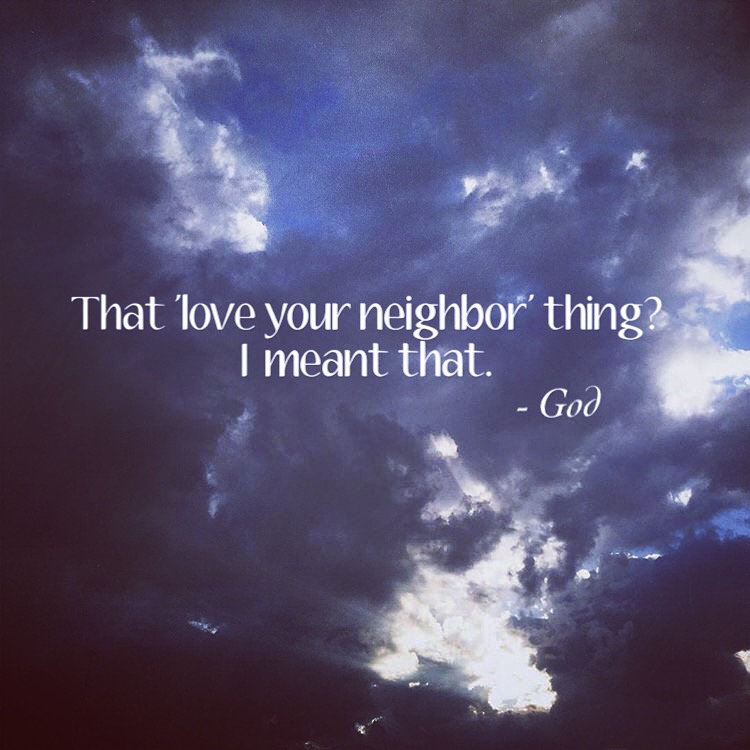


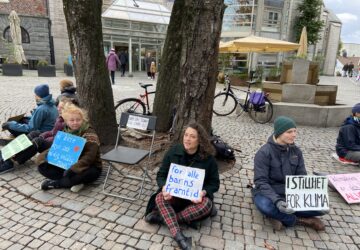
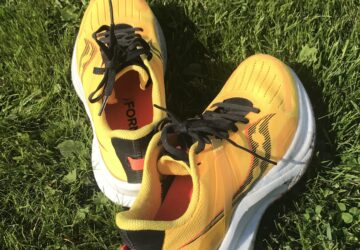


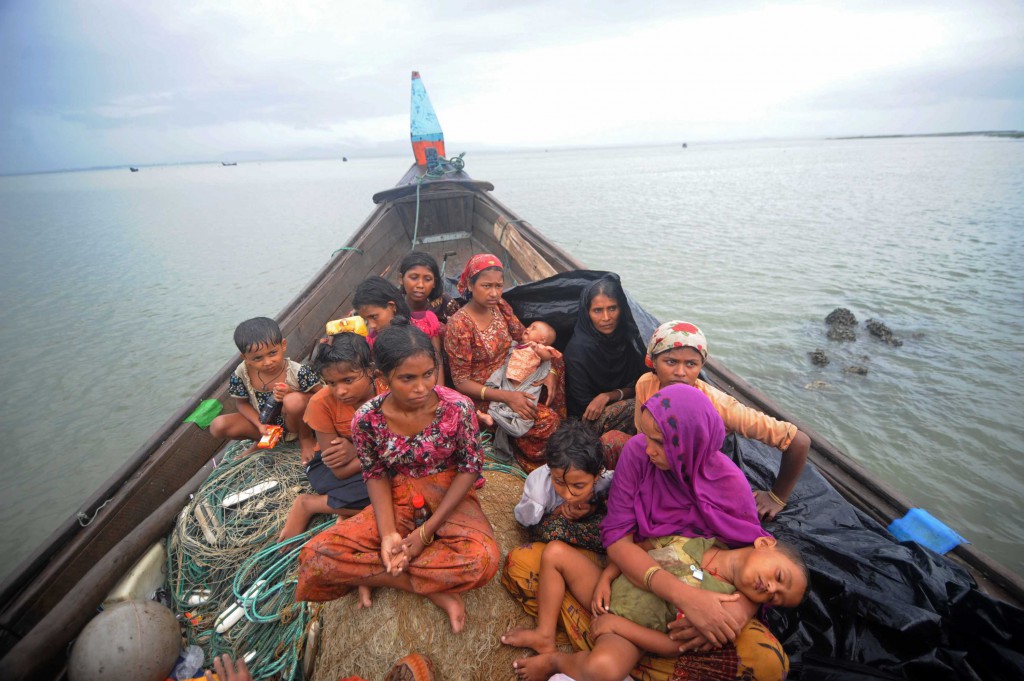
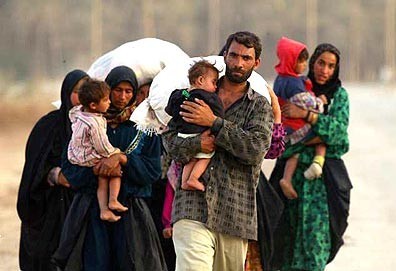
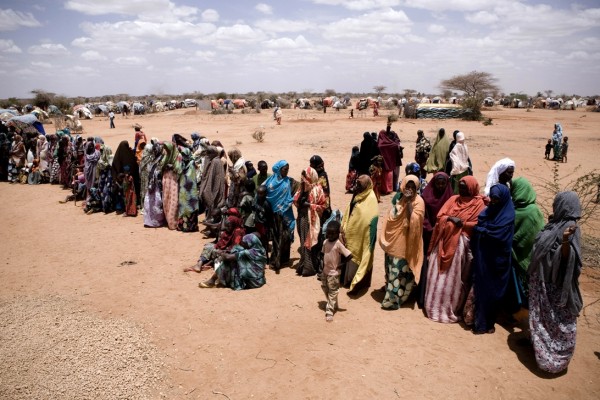


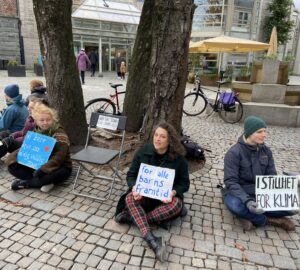
Thank you Joanna. This is some extraordinary writing you have done; a very thoughtful, mature and cogent unfolding of the meaning of the scriptures. The LDS church tends to reflect somewhat the culture(s) in which we live. Thus, the LDS church — to varying degrees — must deal with all the same social ills that also afflict other subsets of society. However, in my estimation, what you write about is perhaps the greatest challenge to our LDS membership today.That is, how do we confront and deal with the materialism that incites one to behave contrary to what the scriptures teach us? As you advocate so well, this confrontation must be especially personal. It requires a great deal of soul searching and then action. I believe this great challenge is our great obstacle to building a Zion society. And the battle can only be won, person-by-person, one soul at a time. Thank you for such encouraging words!
Sweetheart!! <3
This is a lovely and insightful piece. Thank you for your thoughts. My parents, who live in Salt Lake City, Utah, have been working with Burmese refugees there for 10 or more years now, helping them get their bearings, find jobs and job training through the many wonderful LDS Church programs, and they have witnessed so many miracles. These Burmese refugees are so humble and focused on overcoming the many challenges they have faced. The Church helps everyone, regardless of religion, and no one is made to feel obligated to join the church, yet many do. My parents have told me so many stories of sweet, faithful people who have joined the church, prospered, and reached out to help many others. It is a beautiful thing that even through horrific refugee circumstances, it appears as if the tribes of Israel are truly gathering in ways no one had imagined.
Thank you for your kind and inspiring comment! I am so grateful that our leaders are encouraging us as individuals, families, communities and as a church as a whole to live our religion. Not just talk about it, but really live it. And as with any other commandment, we stand to gain so much more than what we give…<3